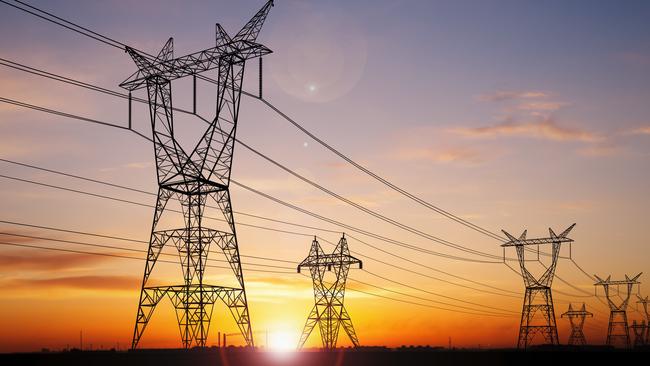
It’s no surprise that two major Canadian institutions have woken up to what is ahead and are set to snap up one of our largest electricity infrastructure groups at prices related to today’s conditions.
I have a high opinion of the infrastructure investment skills of the Canadians.
Eleven years ago the Canada Pension Plan Investment Board and the Ontario Teachers’ Pension Plan purchased big stakes in Transurban and bid for the lot at $5.57 a share. Sleepy Australian institutions had not understood the looming boom in toll roads.
In 2010 our local investment market was lucky because heading Transurban at the time was led by former BHP CFO Chris Lynch (now a Westpac director) and Lindsay Maxsted was about to take the Transurban chair. They realised the Canadian bid did not allow for the future and so was far too low. The Canadians were unhappy about Transurban’s Lane Cove tunnel takeover and withdrew.
Now, 11 years later, Canadians, again led by the Ontario Teachers’ Pension Plan (plus the private equity giant KKR) can once again see an Australian infrastructure boom around the corner. This time the directors of Spark are happy to recommend a Canadian bid and are supported by a number of local entrepreneurial institutional investors. Overall, Australians have not grasped what is ahead.
Earlier this month, under the heading “Electric cars to be here faster than we expect”, I set how electric cars are sweeping the US, Europe and China and we will be part of the action.
That will require an enormous increase in the need for power generation and distribution. Power retailers will compete with the current petrol retail system. Major infrastructure investment will be required in power grid distribution - an even bigger investment boom than toll roads.
This week the Energy Policy Institute of Australia sent me a significant paper written by
by Stephen Anthony, formerly an Industry Super Australia analyst and now with Macroeconomics Advisory.
Anthony’s message is stark. Australia is coming to be seen as an outlier in decarbonisation with weak policies and inadequate targets. Without action, it is becoming likely that we will be subjected to economic sanctions.
The Canadians believe that once this happens - and it will be foreshadowed within two months at the Glasgow UN Climate Change Conference - Australia will act quickly. Accordingly now is the time to get set, so they are bidding for Spark.
Anthony says current policy settings are a complicated way of trying to make solar and wind work and result in fragmented oversight and planning.
Much more attention needs to be paid to overall grid stability and the destabilising impacts of asynchronous generation.
Ignoring the need for national co-ordination and long term directions and leaving generation decisions to sub-national state governments, or to the market alone, must “end badly”. When states set individual renewable energy and emissions targets, they may following a locally optimal pathway with a limited set of technologies. On a national basis all technologies are available.
And there are massive investments required in our grid. The electricity grid in eastern Australia runs for 5000 kilometres and is one of the longest in the world. Our population is relatively sparse and interconnections are relatively thin. This creates vulnerabilities.
By contrast, Europe has an interconnected grid serving 400 million customers, while the United States has four interconnected mainland grids serving 150 million customers. Texas is relatively isolated and events in February this year have shown the risks this presents.

Currently, without a serious and properly analysed national policy based on technical realities as well as market needs, Australian institutional investors will be reluctant to support the needed infrastructural investment.
A framework for investors is required by setting goals and issuing guidelines about technological directions, demand profiles, investments requirement, rate of return targets, etc.
The Canadians believe that Australia will be forced to follow Anthony’s advice and implement a proper grid investment plan with rates of return that will make investment attractive.
Australia’s power grid companies have had a difficult time because the government rules keep changing and the situation is made more complex by the different state generation policies. But when, as is likely, sanctions are foreshadowed for Australia, whether they be fair or unfair, we will quickly get our house in to order. That will require a pragmatic approach to different generation methods and a focus on our grids.
Those in the key positions, like Spark, will have the opportunity to invest major sums on infrastructure rates of return. It’s a perfect opportunity for those who are investing long-term for the retirement of members.
Spark’s stakes in the grid are mouth-watering to the Canadians. Spark has a $17 billion network that includes Victorian networks CitiPower and Powercor, which distribute electricity to more than one million customers in Victoria, 49 per cent of SA Power Networks, (the sole operator of South Australia’s electricity distribution network) and 15 per cent of NSW’s transmission monopoly Transgrid.
Good luck to the Canadians. Unlike their 2010 Transurban adventure the likes of Chris Lynch and Lindsay Maxsted are not around in power infrastructure and our local institutions are not prepared to bet on what is going to happen.


The nation has not yet woken up that Australia is going to require massive investment in our power grids to cater for the increase in electrification led by motor transport and greater use of the internet.